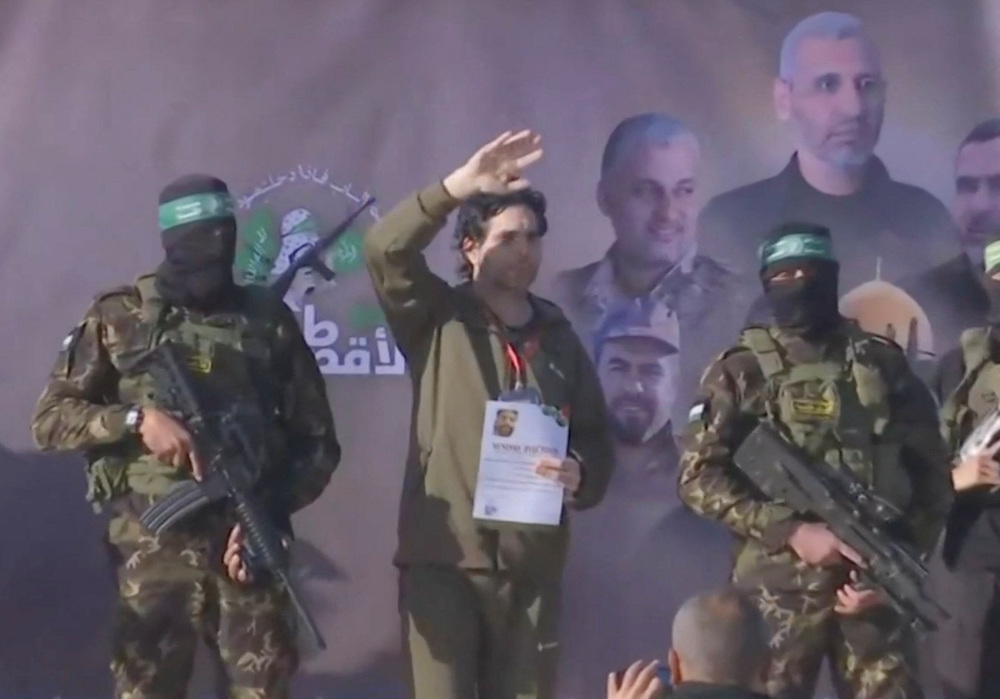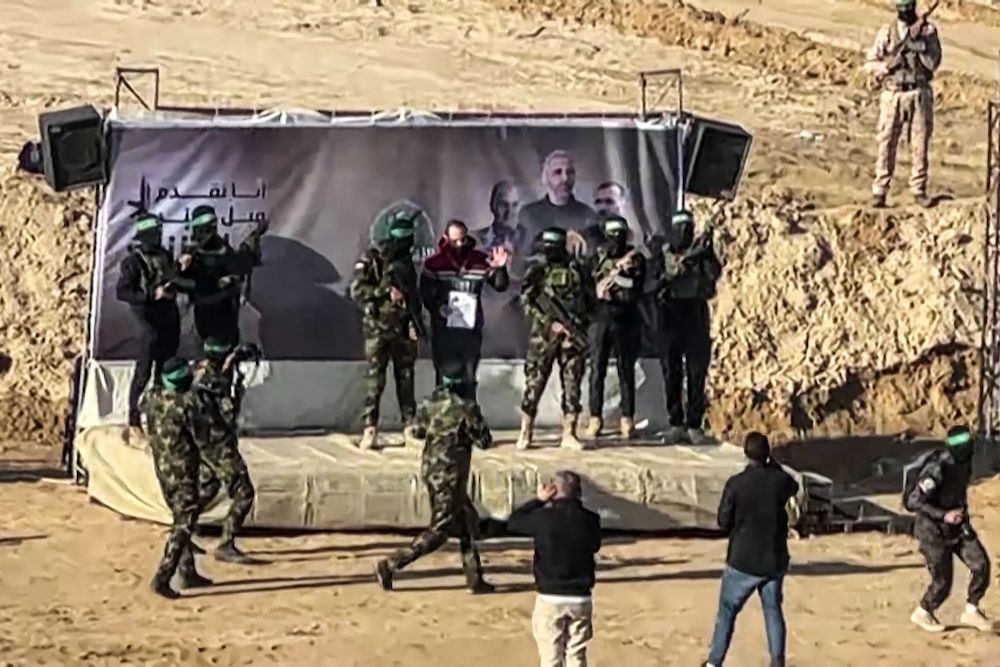LONDON: A financial adviser on the Channel Island of Guernsey funneled the ill-gotten gains of an uncle of Bashar Assad through her personal bank account.
Rifaat Assad, known as the “Butcher of Hama” for overseeing the violent suppression of a rebellion in the 1980s, used an adviser in Guernsey to secretly manage his wealth, which included a vast European property empire worth hundreds of millions of euros that prosecutors claim was acquired with funds looted from the war-torn state.
Rifaat Assad has been accused of war crimes by Swiss prosecutors and was convicted by a French court, in 2020, of embezzling Syrian state funds and pouring the money into luxury properties, with the French state seizing assets worth €90 million ($94.5 million).
In a joint investigation, The Guardian and the Bureau of Investigative Journalism have now identified him as a client of a Guernsey consultant who was fined by regulators earlier this year. Ginette Louise Blondel, 40, was banned from working as a director for nine years and fined £210,000 ($266,000) by the Guernsey Financial Services Commission in March.
Originally employed as a personal assistant for the son of her client, then as a consultant, Blondel went on to manage a complex trust structure on the family’s behalf, according to a notice published by the regulator. In one instance, her personal bank account was used to distribute €1 million to third parties on her client’s behalf.
The notice does not name Blondel’s employer, simply referring to them as “Client 1.” However, details of the case, and evidence gathered by international prosecutors, indicate that Client 1 was Rifaat Assad.
A brother of Hafez Assad, who seized power in Syria in a 1971 coup, Rifaat was the head of the Defense Brigades. His elite forces allegedly oversaw the massacre of an estimated 20,000 people in the town of Hama in 1982.
The Assad regime collapsed this month as rebel groups seized control of the capital, Damascus, after more than a decade of civil war. Assad family members have been granted asylum in Moscow. It is unclear whether Rifaat, now 86, is among them. His European wealth remains in limbo, with freezing orders imposed in the UK, Spain and France, meaning properties cannot be sold without permission from the authorities.
The regulator’s case against Blondel is a window into the role played by tax havens such as Guernsey in enabling ultra-wealthy individuals — even those suspected of the most serious atrocities — to shelter and grow their wealth in Europe.
“Rifaat Assad’s crimes, particularly the 1982 Hama massacre, are among the gravest atrocities of our time,” said Philip Grant, the executive director of Trial International, which filed the criminal complaint against him in Switzerland.
Chanez Mensous, a lawyer at the nongovernmental organization Sherpa, which initiated the French criminal complaint against Rifaat, called on European governments to repatriate money raised from asset seizures to vulnerable Syrians. “Restitution is essential,” she said.
In 2013, two years into the Syrian civil war, Swiss prosecutors began investigating Rifaat’s alleged role in the Hama case. He was uniquely vulnerable to prosecution, having been expelled from Syria in 1984 after staging a failed coup against his brother.
In exile he set up home in France while developing an €800 million real estate portfolio with offices, villas, mansions and apartments in London, Paris and Marbella. A 2019 judgment from one of the cases against him disclosed that more than 500 properties belonging to Rifaat were under asset freezes.
According to Spanish prosecutors, the properties were owned by companies whose directors included Rifaat’s frontpeople or numerous family members — he was reported to have had four wives and 16 children — but rarely by the man himself.
His property empire has included:
- The Witanhurst Estate in Highgate, north London — the second-largest private residence in the capital after Buckingham Palace. Rifaat sold it for £32 million to developers in 2007 after leaving it in disrepair.
- A £50 million mansion in South Street, Mayfair. Owned through a shell company in the British Virgin Islands, it was frozen by British proceeds-of-crime prosecutors in 2017.
- A seven-bedroom, seven-bathroom estate in Leatherhead, Surrey, with a gym, tennis court and indoor swimming pool. It was sold for £4 million in 2016 before prosecutors could impose an asset freeze.
- A seven-story mansion on Avenue Foch, which leads to the Arc de Triomphe in the most expensive arrondissement of Paris. Art and furnishings from the property were auctioned but the property itself is frozen.
- Thirty-two apartments in Avenue du President Kennedy, Paris, which runs along the bank of the Seine next to the Eiffel Tower.
- La Maquina, a €60 million estate occupying almost a third of the entire Marbella resort town of Benahavis. La Maquina’s footprint is so expansive that the Assads were reported to have considered transforming it into an enclave exclusively for wealthy Syrians.
Spanish prosecutors alleged that the source of the funds used to buy those properties was a combination of $200 million stolen from the Syrian state and disguised as expenses, and a $100 million loan from Libya. Rifaat and his associates were accused of profiting from “huge illicit resources from multiple criminal activities: extortion, threats, smuggling, plundering of archaeological wealth, usurpation of real estate, [and] drug trafficking.”
Rifaat left France for Syria in 2021, shortly before the French court of appeal upheld his June 2020 conviction for money laundering and aggravated tax fraud, for which he was sentenced to four years in prison. In March this year, Swiss prosecutors charged him with war crimes and crimes against humanity.





























